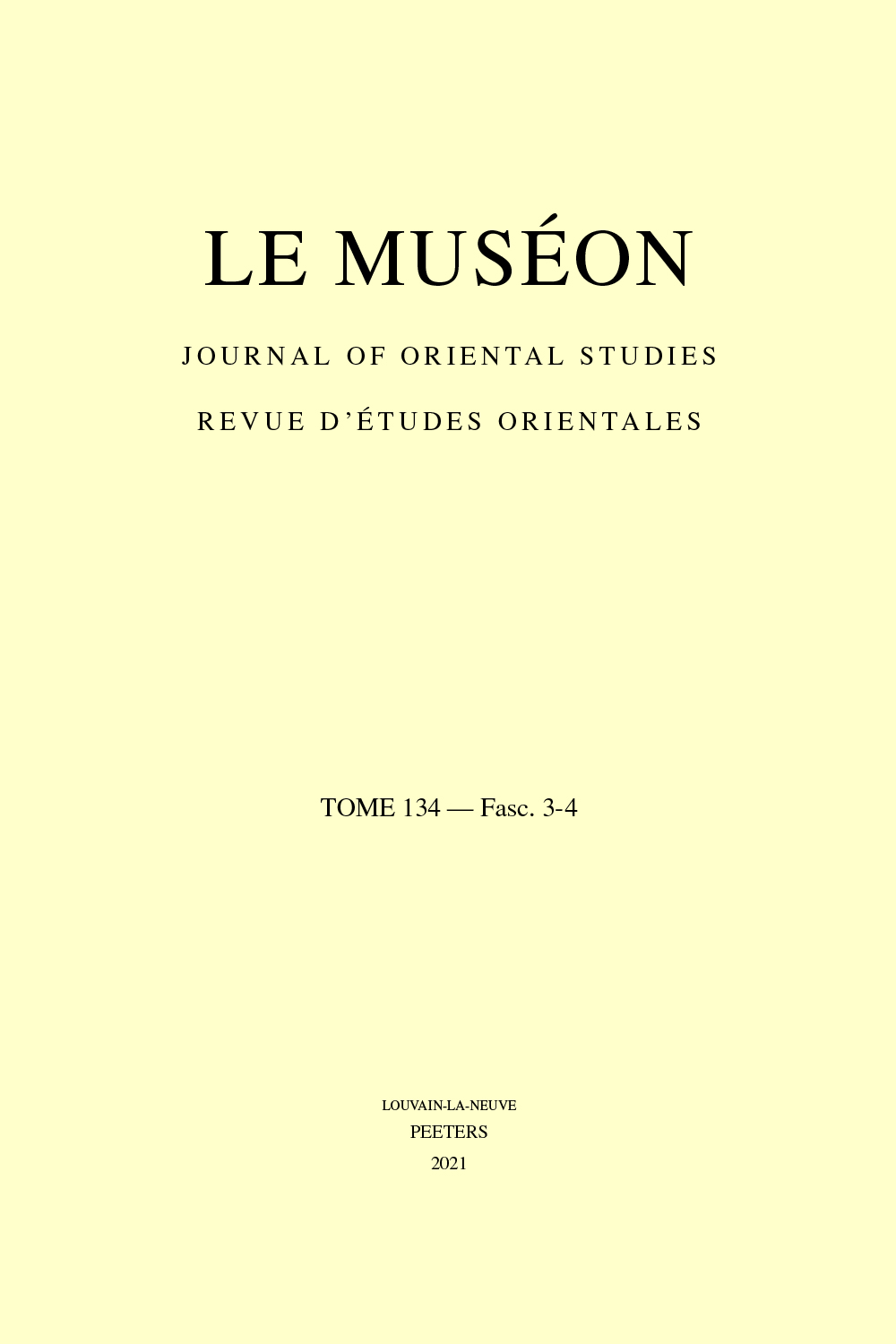 previous article in this issue previous article in this issue | next article in this issue  |

Preview first page |
Document Details : Title: From Epic to Parable Subtitle: A Syriac Reading of the Fall of Troy Author(s): NICCOLAI, Lea Journal: Le Muséon Volume: 132 Issue: 1-2 Date: 2019 Pages: 37-64 DOI: 10.2143/MUS.132.1.3286533 Abstract : The Syriac Anonymous Chronicle up to the year 1234 provides an account of the Trojan War that stands out among all other Syriac medieval chronicles for its extensiveness and richness of detail. The question of its sources is very much open to debate, as its narration stems neither from the Homeric poems nor from later revisitations of the siege (e.g. Dictys of Crete’s account), coinciding rather in content with the so-called Epic Cycle, the set of Greek archaic poems that narrated the events surrounding the Iliad and the Odyssey. Addressing the recent hypothesis of the account’s dependence on the Syriac translation of one of these poems, the Iliou Persis (ca. 6th c. BCE), my paper argues in the first place that the narrative in the Anonymous Chronicle is in fact more likely to derive from cyclic materials mediated through late antique Greek re-elaborations. Secondly, by placing the account in the context of late antique allegorical readings of the Homeric poems, it suggests that in its final redaction the Anonymous Chronicle’s Trojan section was adapted in order to fit into a typological relationship with canonical Biblical and historical accounts of the fall of cities (most noticeably with that of the siege of Jerusalem of 70 CE) and thus made to serve the Christian teleological view of universal history in a way that finds no parallel in the Greek and Near Eastern reception of the fall of Troy. |
|


